2020:Online-Offline Integration
2021-02-24byGongHaiying
by Gong Haiying
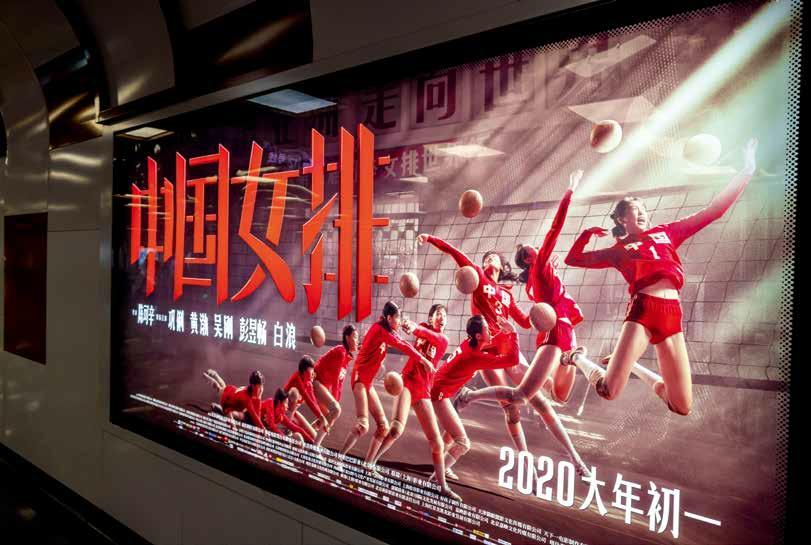
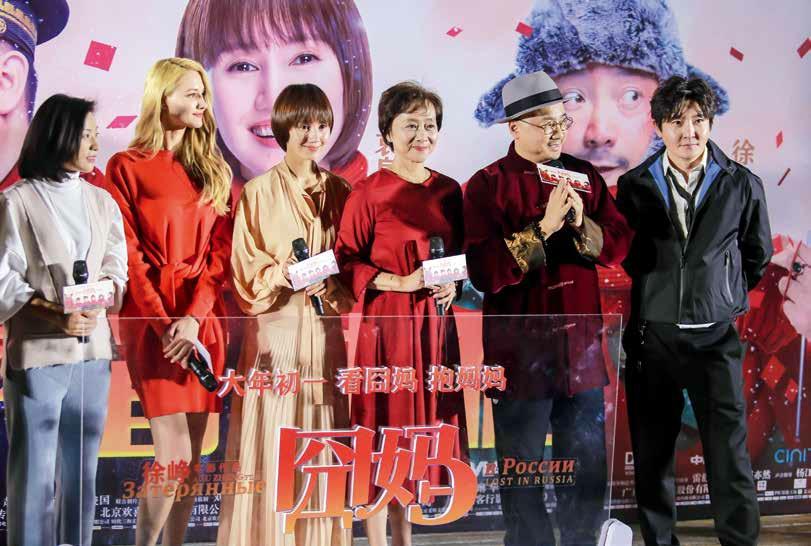
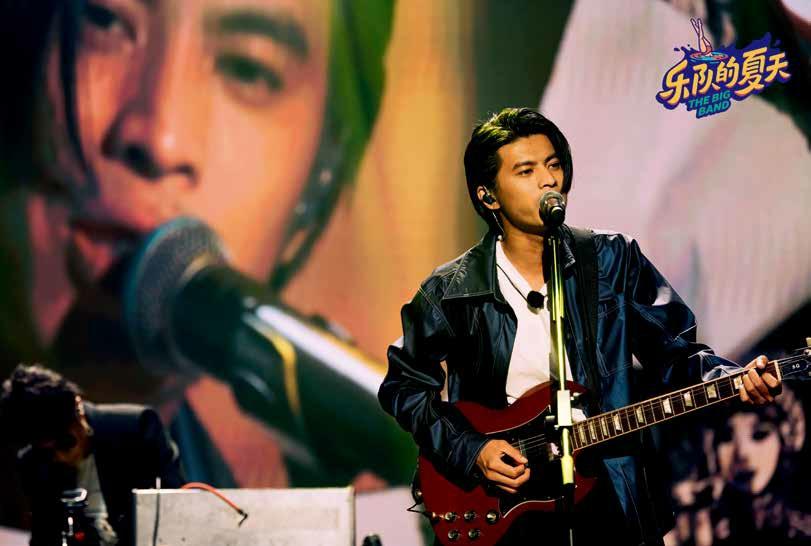
In the early days of the COVID-19 outbreak, many cultural and art events and services like movies, exhibitions, education, and concerts moved entirely online. They lifted the cultural spirit of people stuck at home to maintain social distancing for epidemic prevention and control while reshaping cultural connections between individuals and society. As the epidemic was effectively contained in China, more and more people returned in swarms to museums, cinemas, and theaters, under masks. The threat of the pandemic still raging in most parts of the world seems to cause greater thirst for art and cultural products that may bring comfort and peace to the soul.
Chinese National Costume Day
In recent years, huafu, apparel manifesting aesthetic styles of traditional Chinese culture, has quickly gained popularity among youngsters, becoming a cultural phenomenon integrating fashion and tradition. Statistics show that the annual sales volume of huafu has reached hundreds of millions of U.S. dollars.
The revival of traditional Chinese costumes isnt about cultural defense, but maintaining hope in the possibility of a resurgence of traditional culture in modern society and finding a new way to conduct dialogue with the world.
Sun Xixuan, president of Dbus-Gtsang Huafu Club in Lhasa, Tibet
Forbidden City at 600
The Palace Museum presented a series of cultural activities to celebrate the 600th birthday of the Forbidden City on December 8, 2020. From an imperial palace to a public museum, the Forbidden City not only manifests the unparalleled beauty of Eastern architecture but also preserves abundant cultural heritage.
The 600-year-old Forbidden City needs to absorb advanced civilizations of other countries through cultural exchange between China and the rest of the world and promote mutual learning of different civilizations through dialogue between past and present.
Wang Xudong, director of the Palace Museum
Brick-and-Mortar Bookstores
Bookstores have become urban cultural landmarks. Although offline book retailing has been greatly impacted by the internet in recent years, new physical bookstores continue to open across China. As of November 2020, the number of physical bookstores in Beijing reached 1,910, an increase of 611 (47 percent) over the previous year, achieving the goal of 0.8 bookstores per 10,000 people ahead of schedule. Bookstores are no longer just for buying books. They now often offer dining, cultural activities, and distinctive reading spaces with creative design and peripheral cultural products.
Bookstores scattered along streets and alleys have a cultural function on par with a concert hall. To a certain extent, bookstores inch closer to the lives of ordinary people. If physical bookstores ever ceased to exist, it would create a big void in the human experience.
Li Jingze, vice chair of the China WritersAssociation
Leap
On November 28, 2020, Leap was named the Best Feature Film at the 33rd China Film Golden Rooster Awards. The film recounts milestone events in the history of the Chinese womens volleyball team including their first world championship in 1981, competition with the U.S. team at the 2008 Beijing Olympics, and the defeat of the host team in the quarterfinal match at the 2016 Rio Olympics in Brazil. It traces the birth, development, and spirit of the Chinese womens volleyball team and captures the players perseverance and determination to transcend sports.
Though I didnt grow up or live long on the Chinese mainland, I have continued expressing my sincere, optimistic, and kind feelings about the motherland as well as its changes from the beginning of the reform and opening up to today.
Peter Chan, a renowned Hong Kong director
Online Movies
As increasing numbers of films move from brick-andmortar theaters to online platforms, more and more viewers have embraced online movies. Statistics show that by November 15, 2020, 69 Chinese online movies had earned revenues exceeding 10 million yuan (US$155,300), much higher than the 40 of the previous year. More importantly, Chinas online movies saw rapid improvement in quality and profitability in 2020, incubating numerous young talented directors, producers, and screenwriters.
The rise of online movies is a trend that cannot be ignored in China. In the future, internet-born movies will break through the confines of online platforms and occupy a certain position in cinema.
Yin Li, film director and vice president of China Film Association
The Big Band
From July 25 to October 10, 2020, episodes of the second season of The Big Band were broadcast online each Saturday. It became one of the most-watched shows in China since its release. The show gathered more than 30 bands of different ages, and their performances demonstrated the robust vitality of Chinas original music. The show also inspired people to ponder the status quo of Chinese bands and the prospects of band culture.
Large-scale publicity works well in the music industry. Whether or not they win the show, the exposure gets the band heard. Moreover, the show motivated people to pay attention to music.
Shen Lihui, founder of Modernsky Entertainment Co., Ltd.
Stand-up Comedy
In contrast with its first two seasons, the third season of the reality show Rock & Roast featured stand-up comedians from all walks of life and breathed new life into the industry. Despite difficulties in the real world, the stand-ups dared to confront predicaments of life and work, deconstruct the art of worldly wisdom through jokes, and maintain optimism even in adversity. Their performances on the show enhanced Chinese awareness and recognition of stand-up comedy and manifested changes of popular culture in this era.
I believe that everyone could be a comedian if they worked on it. Humor is an innate part of human nature, and it should be part of our lives.
Shi Yan, a famous Chinese stand-up comedian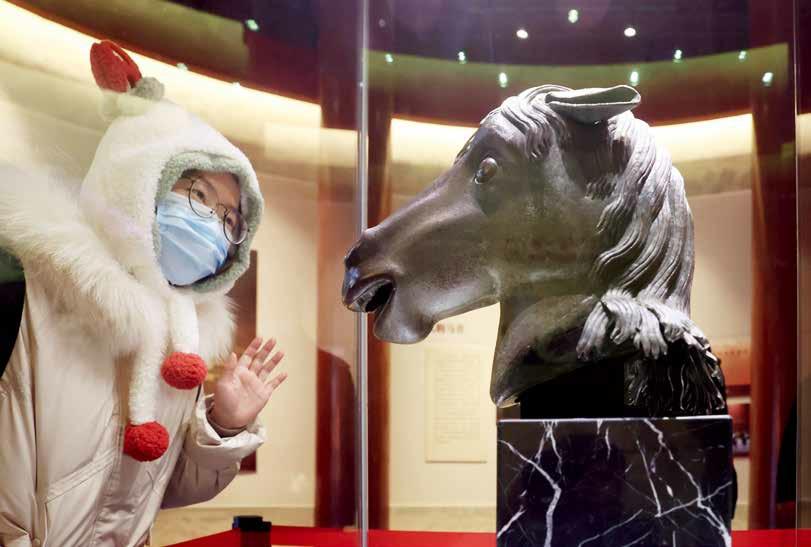
Return of Bronze Horse Head
In 2020, China achieved remarkable outcomes on pragmatic international cooperation in cultural relic restoration and museum exchange. Some rare cultural relics once lost overseas, including the bronze horse head, returned home, marking a major breakthrough in retrieving lost cultural relics.
Since the horse head was returned to Yuanmingyuan, we need to strengthen its protection, research, exhibition and utilization to showcase brilliant, open, and inclusive Chinese civilization which has never stopped improving, and develop broader international consensus on cultural heritage protection.
Liu Yuzhu, director of the National Cultural Heritage Administration of China
Virtual Exhibitions
In 2020, many museums and art institutions moved their exhibitions online to create a virtual experience for would-be visitors. Such online events not only enriched the cultural lives of people stuck at home during the pandemic, but also helped art institutions find momentum for future development.
Since the birth of the internet, integrating online and offline projects has been a persistent challenge for art institutions. The epidemic offered an opportunity to seek possibilities for overcoming this challenge.
Philip Tinari, director of UCCA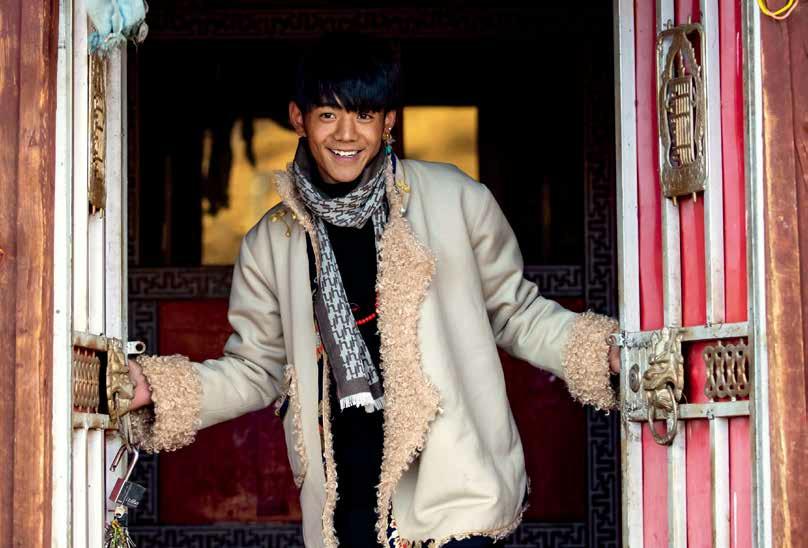
Ding Zhen
After he went viral on the internet, Ding Zhen was then appointed tourism ambassador of Litang and tasked with helping the county become known to more people. By November 25, hotel bookings in Garze had increased by 89 percent compared to the same period in 2019. The following week, the number reached a 100-percent increase year-on-year and stayed steady. The youngster showed off the poetic, untouched land of Litang and provided a glimpse into Chinas poverty reduction campaign and those contributing to it.
Ding Zhen became an internet sensation by chance, but he worked wonders for his hometown. Only by fully leveraging its scenic resources can a destination maintain longterm popularity with tourists.
Hai Xia, a renowned Chinese TV anchor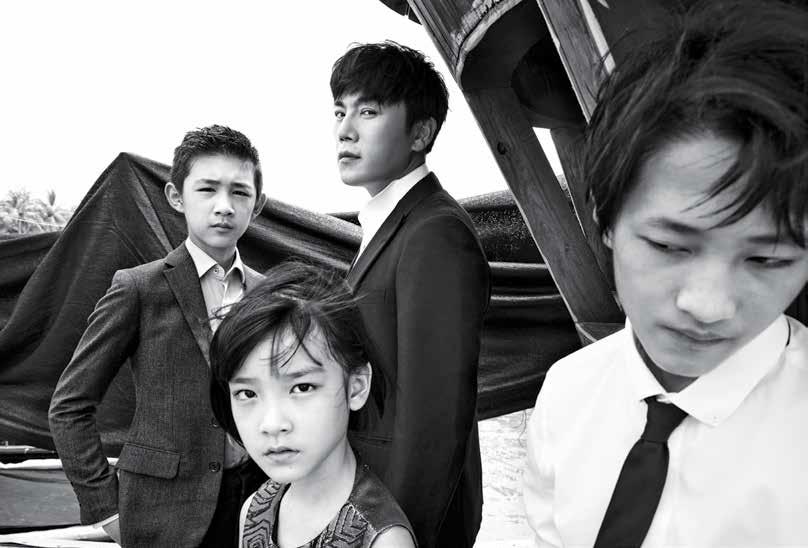
Chinese Suspense Dramas
The year 2020 brought prosperity to Chinese web mysteries. Following The Bad Kids, a dozen suspense series were broadcast through online portals, reigniting the embers of the film and TV show market in the wake of the epidemic. The rise of Chinese suspense dramas was largely attributed to the novel subjects and thrilling plots as well as more mature experiences to be drawn from. However, they are still mostly modeled after counterparts from the United States, Europe, Japan and South Korea and have yet to build an indigenous aesthetic system.
The rise of Chinese suspense series, which can be partly attributed to the flexible narrative mode of web dramas, represents an exploration of the way to meet the demands of viewers in the internet era against the backdrop of enhanced global film and TV exchange. Their new production concepts and teams and novel narrative mode all testify to the rise of a new force.
Zheng Huanzhao, associate professor at the School of Literature, Jinan University